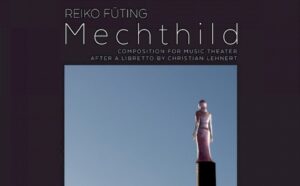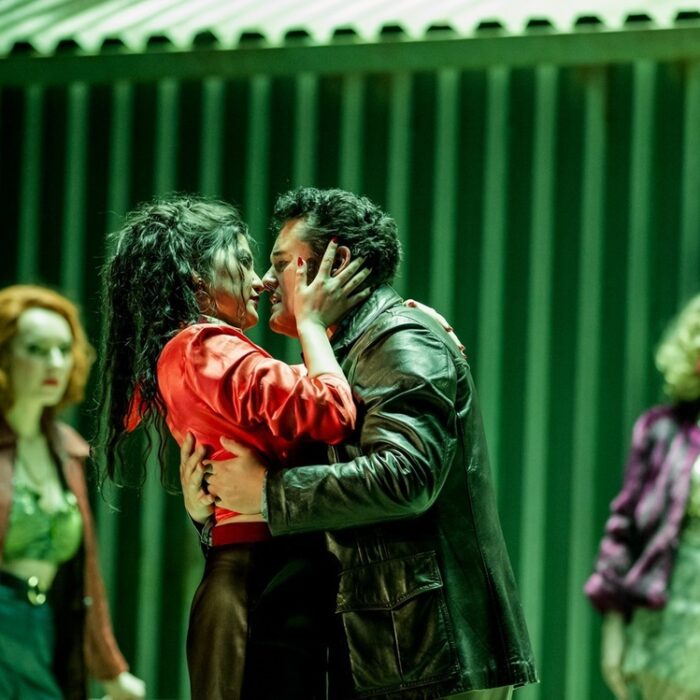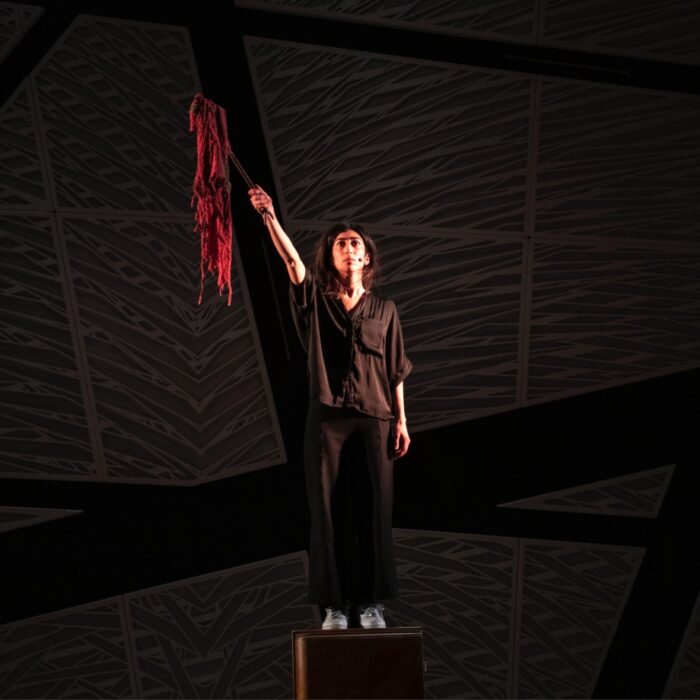
CD Review: Reiko Füting’s ‘Mechthild’
Füting Transcends the Spiritual Legacy of Mechthild of Magdeburg
By Bob DieschburgThe music of Reiko Füting is far from being easily accessible. If anything, his self-declared aim to “explore the psychological nature of memory” makes the music seem more cryptic or, conversely, less ascribable to a given style or even school. There are in fact a lot of isms: punctualism, serialism, minimalism, etc. which fit under the postmodernist umbrella. Each describe elements of Füting’s music and wide-ranging oeuvre, from his chamber music to a cappella compositions and operatic hybrids.
His latest release, “Mechthild,” on New Focus Recordings, falls into the latter category. Based on the life and writings of the Beguine mystic Mechthild of Magdeburg, it is neither an oratorio nor an opera, properly speaking. I would rather call it a cantata in the vein of the Medieval Mysterienspiel or mystery play. It is almost liturgic in its repetitive nature and involving non-musical constituents like dance and art installations which, naturally, are not transferable to CD.
This brings me to my only regret. “Mechthild,” which premiered at the Monastery of Our Lady in Magdeburg in 2022, is missing some of its potential by being confined to music only. For even a cursory glance at the documentary to its Magdeburg premiere, available on YouTube, reveals the piece’s overall conception as some sort of a Gesamtkunstwerk. Heaven and Hell “Mechthild” is divided into three acts retracing the spiritual growth and the tribulations of its title-giving character.
In his libretto, Lehnert relies on the historical Mechthild’s own words. He uses text passages from the seven books of “The Flowing Light of Divinity,” a hallmark of 13th century mysticism with its tortuous visions of Hell and the embrace of the Divine. The main role is doubled, with Olivia Stahn and Hanna Herfurtner singing the parts of her Body and Soul. The narrator’s spoken lines create some sort of commentary or meta-level to Mechthild’s inner drama. Susi Wirth, as the narrator, is haunting and for who understands German the third scene from Act two will prove even more terrifying thanks to the sternness with which she narrates Mechthild’s experience of Hell.
It is, however, hard to judge the performances individually. For the most part, they are built around a central pitch which is repeated extensively and with only small variations. As contemporary mystery play, this is how the fragmentary character of “Mechthild” has an effect. The “psychological nature of memory,” as mentioned before, may best be understood as a mnemonic rehashing of phrases or parts. Whether individually or with the chorus, they form a soundscape of ethereal, yet also challenging beauty. The inclusion of material attributed to Pérotin and Machaut, both active in the 13th and 14th centuries respectively, further bridges the gap between the experimental and slightly dissonant harmonies of postmodernism.
The Medieval context of Christian worship. Füting, in the press release, more ambitiously calls this melodic palimpsest a “compositional device of musical quotation (…) in the entire musical spectrum of assimilation, integration, dissimilation, disintegration, and segregation.” No doubt this intellectualist approach, Füting teaches at the Manhattan School of Music, translates to his compositional language which very much owes to semiotic theory and semantics.
“Mechthild” transpires as a feeling of awe for the spiritual legacy of Mechthild of Magdeburg. Both in the music and in Lehnert’s libretto, this is “Mechthild’s” spirituality. However, we are indeed far away from the late Romantic gestures of Dvořak, in “Ludmila,” or Respighi in “Maria Egiziaca.” The harmonic texture, at times, seems almost diaphanous and might vaguely remind one of Olivier Messiaen’s “Saint François d’Assise.” Conceived as a multimedia experience, however, “Mechthild” stands unique. It has moments of near-transcendent beauty, contrasted with the disquieting pulse of the percussion which, among its very reduced orchestra, has all the characteristics of physical weight or gravity when dragging the protagonist into her vision of Hell.
In short, “Mechthild” requires some preparation in order for its music to unfold its tantalizing effect. It is not a casual listen, but it is well produced. Both the soloists and the ensemble, under conductor Olaf Katzer, deliver a flawless performance. Aficionados with a taste for the scarce will hopefully find plenty to cherish.


